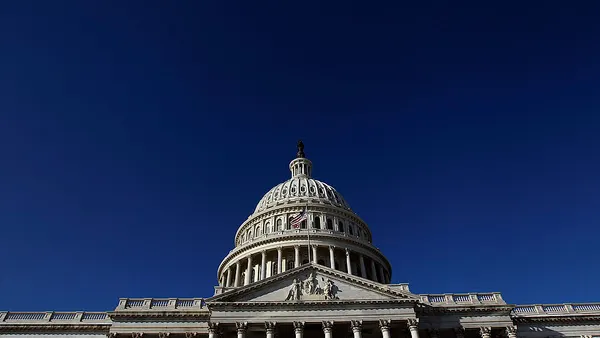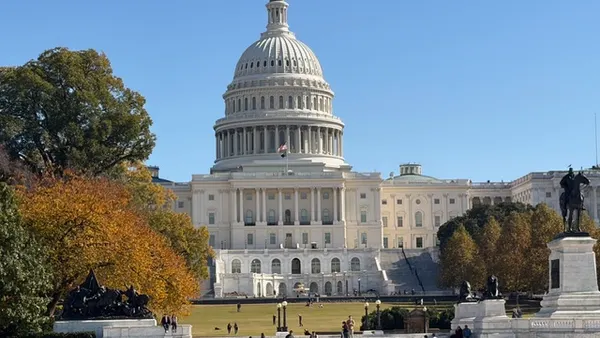Dive Brief:
-
In its second information bulletin on state plan amendments and 1915 waiver process improvements, CMS trumpeted its Medicaid waiver efforts, which the agency said has cut the review process for SPAs and waivers.
-
The agency said the median approval time for Medicaid SPAs dropped by 23% between 2016 (the last year of the Obama administration) and 2018.
-
CMS approved 84% of Medicaid SPAs in the first 90-day review period in the first quarter of this year. That was a 20% increase compared to 2016, the agency said.
Dive Insight:
States typically request changes to their Medicaid programs through an SPA or section 1915 waiver. Requests can lead to a lengthy federal review process.
In November, CMS issued a bulletin seeking to speed the process, including a review of each submission within 15 days, new tools to help states complete requests and expanding MACPro, a web-based system to process requests.
CMS said it has worked with healthcare organizations to better understand processes and look for ways to make improvements. That effort includes a workgroup involving CMS, state representatives and representatives of national organizations.
One aspect of the new process is a 15-day call with states. That check-in allows CMS to avoid issuing informal sets of questions to states related to SPA and waiver proposals. The agency said this change led to a 14% decrease in overall processing time in the first quarter. SPAs are also getting approved 20% faster now.
The agency is also piloting a new expedited review path. This pilot will adjudicate a cohort of SPAs and 1915 waivers through a "streamlined review process." CMS regional offices will process the SPAs and waivers independently.
"Upon receipt, CMS will quickly assess whether new SPA and 1915 waiver submissions meet the criteria for expedited review or one of the other paths," the agency said.
The process will identify SPAs or waivers that may have legal or policy issues or may be at risk for disapproval. This should quicken the process and reduce administrative burdens, according to CMS.
"Today, leadership involvement often does not occur until the second 90-day review period. The goal of earlier leadership engagement on challenging SPAs and 1915 waivers is to minimize the need for formal Requests for Additional Information, which frequently result in these actions spending prolonged periods of time in pending status, and disapprovals," CMS said in the bulletin.
The move to give states more influence of their Medicaid programs has quickened the process, but it hasn't all been successful. One example is Medicaid work requirements. Kentucky was the first state to get that approval, but a federal judge rejected the requirements in June. CMS later re-opened public comment for that proposal to allow feedback on the plan in light of the judge's decision. That public comment period ended Saturday.
Three other states received work requirement waivers. Those may also be at risk after the decision against Kentucky's proposal.











